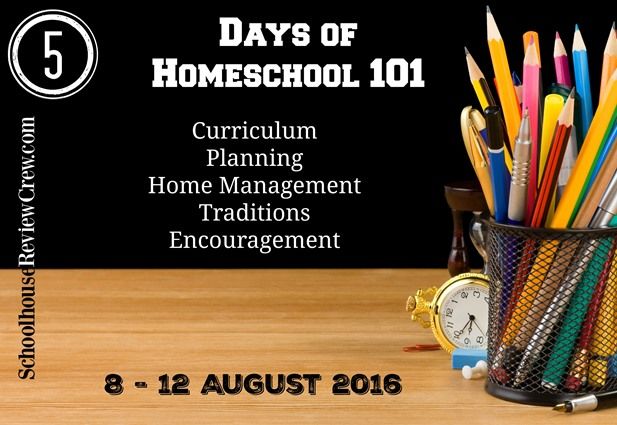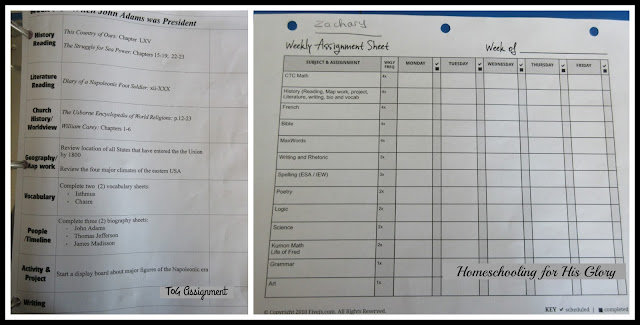On day 2 of the 5 Days of Homeschool 101 hosted by the Schoolhouse Review Crew, we are talking about planning. There is a lot written on the topic of planning but I will try to give you a quick overview of the essentials of planning, not that I am a expert or anything, but I have nearly 9 years of battling the planning battleground in my own homeschool under my belt.
When it comes to planning, a lot of it has to do with your personality and the curriculum that you decide to use.
Some personalities cannot function without a well laid out plan in front of them. These types of homeschoolers usually (not always) favor curriculum that come with a planning schedule already set out. In those cases your task is simply to make sure that that plan is followed through, and the task of planning is reduced to daily, weekly and yearly scheduling of your different subjects.
If you are more like me, and are not the kind who like to be told what to do and are more free spirited, your curriculum line up end up being a mix of stuff that you need to organize.
I have to say from the start that I do not like routine as a general rule, but as I have mentioned numerous times on this blog, I have learned the blessings that result from good planning and routine. A few of these are:
Talking about weekly schedule, last year for my eldest I came up with a schedule that allowed him to focus on certain subjects on certain specific days and then cover the other subjects on the other days. That seemed to work out well for him. The reason behind it was his difficulty to focus, which minimized the amount of work he could do within a certain time frame, so that he was always late in finishing his work, or some was not getting done. So it looked something like this:
My youngest on the other hand loves to spread his work throughout the week, so he will assign a little bit of everything everyday. He is very scheduled and routine driven, so this works better for his brain and way of functioning.
Last year, everyday I would write on a notebook the subjects they had that day. This year I am hoping that I won't need to. I will give them a planner each, and expect them to write out their own weekly schedule, based on my guideline, and hold them to following that.
I have created a few planning worksheets that I have used over the past few years. You are welcome to use them.

When it comes to planning, a lot of it has to do with your personality and the curriculum that you decide to use.
Some personalities cannot function without a well laid out plan in front of them. These types of homeschoolers usually (not always) favor curriculum that come with a planning schedule already set out. In those cases your task is simply to make sure that that plan is followed through, and the task of planning is reduced to daily, weekly and yearly scheduling of your different subjects.
If you are more like me, and are not the kind who like to be told what to do and are more free spirited, your curriculum line up end up being a mix of stuff that you need to organize.
I have to say from the start that I do not like routine as a general rule, but as I have mentioned numerous times on this blog, I have learned the blessings that result from good planning and routine. A few of these are:
- Routine helps your school day to run smoothly. When you are prepared you won't believe how things just flow. No kidding, this is a real life and sanity saver!
- Planning ahead allows you to have peace of mind because you then have a clear idea of what needs to be accomplished.
- Planning ahead allows for more flexibility as you end not having to scramble around when things don't go as planned, you just need re-arrange things around.
- Planning allows you to see where you are heading.
- Figuring out your school year calendar, plotting out your days and weeks off, and arranging your school days around it.
- Deciding what subjects will be covered on what day.
- Figuring out how you want to split your curriculum between your school days throughout your year. Some like doing block scheduling when they focus on some subjects for a period of 6 weeks to 3 months and then switch to something else for another block of time. Some prefer to spread their subjects over the course of the year.
- Figuring out a weekly and daily schedule or routine, for me this is the hardest one, as I am not very disciplined, and yet this is the one that is very vital. Between a strict schedule (detailed your plan by time) and a routine (a general plan of what needs to be done), I still prefer the routine though.
- Preparing what you need for your different subjects. There is nothing more unsettling and disruptive than not having what you need for a particular subject on hand when you need it. Trust me, I have been there too many time I care to admit, and it has really held us back.
- Printing a yearly calendar so I can have an idea of our tentative times off.
- Preparing for our core curriculum, Tapestry of Grace, which runs a full 36 weeks and for which my kids are part of a weekly online co-op. This involves preparing their weekly assignments, which I do a unit at a time (9 weeks worth), printing maps, and getting the books ordered from the library.
- Setting a weekly schedule. I let the boys parse out their work throughout the week as well as their daily routine. I just give them the guidelines. We run a 4 days school week. I tell them how many times a subject has to be covered in a particular week, and how much work needs to be accomplished, and they decide how they want to get it done and spread it.
Talking about weekly schedule, last year for my eldest I came up with a schedule that allowed him to focus on certain subjects on certain specific days and then cover the other subjects on the other days. That seemed to work out well for him. The reason behind it was his difficulty to focus, which minimized the amount of work he could do within a certain time frame, so that he was always late in finishing his work, or some was not getting done. So it looked something like this:
Monday: History, French, Bible, MathI will try something similar this year, but have not yet decided what it is going to be. I need to discuss it with him.
Tuesday: Grammar, Writing, Math, French, Bible, Logic
Wednesday: French, Bible, Math, Continue Writing - his co-op class and his violin lesson were on that day
Friday: Logic, French, Bible, Finish Writing, finish History, Math
My youngest on the other hand loves to spread his work throughout the week, so he will assign a little bit of everything everyday. He is very scheduled and routine driven, so this works better for his brain and way of functioning.
I have created a few planning worksheets that I have used over the past few years. You are welcome to use them.




Comments